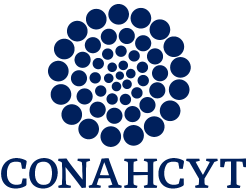A memory-efficient encoding method for processing mixed-type data on machine learning
The most common machine-learning methods solve supervised and unsupervised problems based on datasets where the problem’s features belong to a numerical space. However, many problems often include data where numerical and categorical data coexist, which represents a challenge to manage them. To transform categorical data into a numeric form, preprocessing tasks are compulsory. Methods such as one-hot and feature-hashing have been the most widely used encoding approaches at the expense of a significant increase in the dimensionality of the dataset. This effect introduces unexpected challenges to deal with the overabundance of variables and/or noisy data. In this regard, in this paper we propose a novel encoding approach that maps mixed-type data into an information space using Shannon’s Theory to model the amount of information contained in the original data. We evaluated our proposal with ten mixed-type datasets from the UCI repository and two datasets representing real-world problems obtaining promising results. For demonstrating the performance of our proposal, this was applied for preparing these datasets for classification, regression, and clustering tasks. We demonstrate that our encoding proposal is remarkably superior to one-hot and feature-hashing encoding in terms of memory efficiency. Our proposal can preserve the information conveyed by the original data.
Keywords: categorical data; data preprocessing; machine learning
Descarga el archivo aquí
Más Vistos
- Who participates in conservation initiatives? Case studies in six rural...
- Regular Activity Patterns in Spatio-Temporal Events Databases: Multi-Scale...
- A case study of spanish text transformations for twitter sentiment analysis
- Dual-plane slightly off-axis digital holography based on a single cube beam...
- Evolutionary approach for detection of buried remains using hyperspectral images
Más Recientes
- Mayasoundex: A Phonetically Grounded Algorithm for Information Retrieval in the...
- Incorporating Natural Language Processing models in Mexico City's 311 Locatel
- The Geopolitical Repercussions of US Anti-immigrant Rhetoric on Mexican Online...
- Automation of Topic Generation in Government Information Requests in Mexico
- La incidencia de las voces misóginas sobre el espacio digital en México



